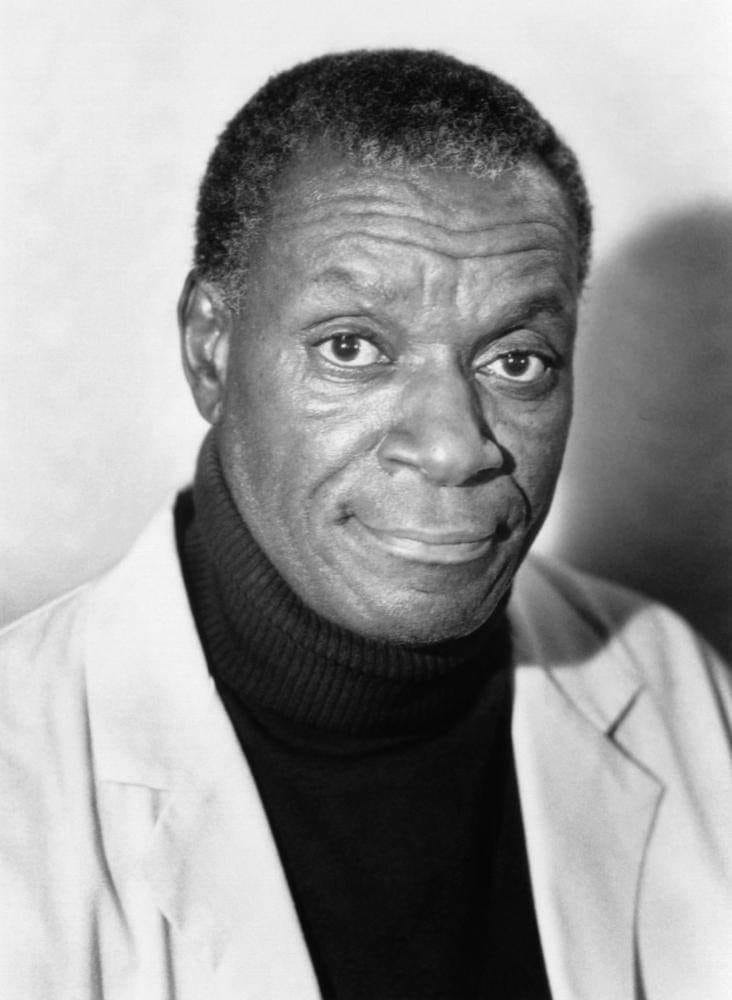Moses Gunn (October 2, 1929 – December 16, 1993) was an American actor of stage and screen. An Obie Award-winning stage player, he co-founded the Negro Ensemble Company in the 1960s. His 1962 Off-Broadway debut was in Jean Genet’s The Blacks, and his Broadway debut was in A Hand is on the Gate, an evening of African-American poetry. He was nominated for a 1976 Tony Award as Best Actor (Play) for The Poison Tree and played Othello on Broadway in 1970.
He was the eldest of seven children from a St. Louis family that splintered when his mother died. He left home and rode the railroad at just 12 years old. He returned to St. Louis, and attended school while living at the home of Jewel Richie, his English and diction teacher.
In 1954, Gunn began a three-year service in the Army. He received his B.A. degree from Tennessee State University in 1959. After that, he studied at the University of Kansas in its graduate program for speech and drama. He was belatedly awarded his M. A. degree in 1989. An authoritative black character actor of film and TV, Gunn also enjoyed a successful career on stage. He made his New York stage debut in the original off-Broadway production of Jean Genet’s “The Blacks” (1962).
A co-founder of the celebrated Negro Ensemble Company, he distinguished himself in many of its productions, notably “The First Breeze of Summer” (1975). Gunn was also known for his Shakespearean performances with the Yale Repertory Theatre and the New York Shakespeare Festival.
Gunn rarely had comparable roles to showcase his talents in films, but his large, regal features and booming yet somewhat raspy voice stood out during his 25-year film career. Gunn may be best remembered as Bumpy Jonas, the powerful Harlem gangster whose daughter is kidnapped in Gordon Parks’ “Shaft” (1971). He enhanced that role in Parks’ “Shafts Big Score” (1972). Gunn was also memorable as Booker T. Washington in “Ragtime” (1981). His last major film was Clint Eastwood’s “Heartbreak Ridge” (1986), in which he played aging vet Sergeant Webster.
Gunn also worked extensively in TV. He was nominated for an Emmy for his portrayal of African chief “Kintang” in the first installment of “Roots” (ABC, 1977). Gunn joined the cast of the hit CBS sitcom “Good Times” in 1977 as Carl Dixon, the appliance store owner who marries the widowed Esther Rolle and whisks her away from the projects.
He was also a guest star on numerous series, including “The Cosby Show,” “Equal Justice,” and “Homicide.” Moses Gunn co-starred in South African playwright Athol Fugard’s “Blood Knot” and “My Children, My Africa” in 1993.
He died from complications of asthma in Guilford, Connecticut on December 16, 1993. He was survived by his wife Gwendolyn, a son, Justin, of Guilford; a daughter, Kirsten Landes Mudd of Philadelphia, as well as a brother and three sisters

